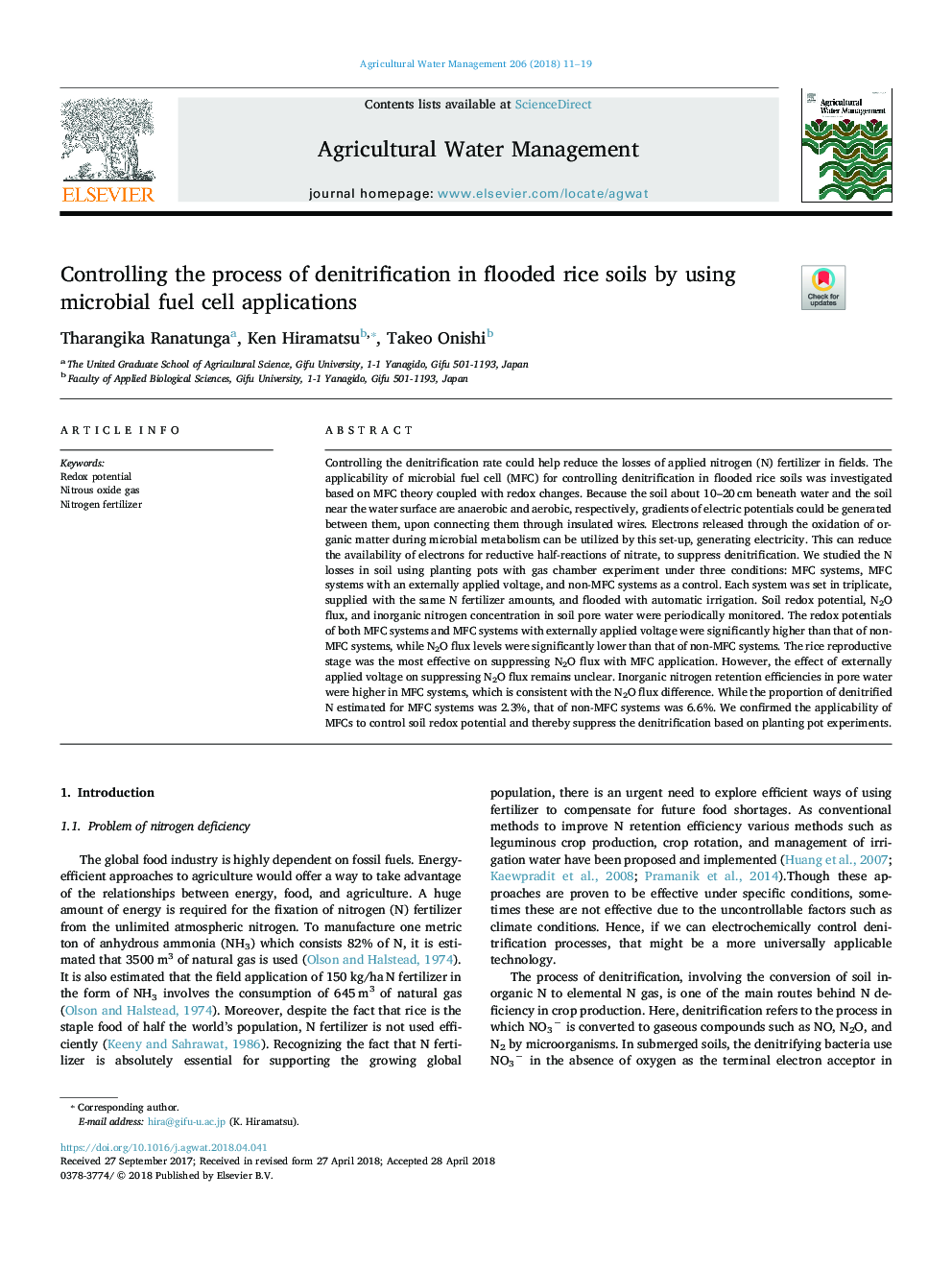| کد مقاله | کد نشریه | سال انتشار | مقاله انگلیسی | نسخه تمام متن |
|---|---|---|---|---|
| 8872834 | 1622874 | 2018 | 9 صفحه PDF | دانلود رایگان |
عنوان انگلیسی مقاله ISI
Controlling the process of denitrification in flooded rice soils by using microbial fuel cell applications
دانلود مقاله + سفارش ترجمه
دانلود مقاله ISI انگلیسی
رایگان برای ایرانیان
موضوعات مرتبط
علوم زیستی و بیوفناوری
علوم کشاورزی و بیولوژیک
علوم زراعت و اصلاح نباتات
پیش نمایش صفحه اول مقاله

چکیده انگلیسی
Controlling the denitrification rate could help reduce the losses of applied nitrogen (N) fertilizer in fields. The applicability of microbial fuel cell (MFC) for controlling denitrification in flooded rice soils was investigated based on MFC theory coupled with redox changes. Because the soil about 10-20â¯cm beneath water and the soil near the water surface are anaerobic and aerobic, respectively, gradients of electric potentials could be generated between them, upon connecting them through insulated wires. Electrons released through the oxidation of organic matter during microbial metabolism can be utilized by this set-up, generating electricity. This can reduce the availability of electrons for reductive half-reactions of nitrate, to suppress denitrification. We studied the N losses in soil using planting pots with gas chamber experiment under three conditions: MFC systems, MFC systems with an externally applied voltage, and non-MFC systems as a control. Each system was set in triplicate, supplied with the same N fertilizer amounts, and flooded with automatic irrigation. Soil redox potential, N2O flux, and inorganic nitrogen concentration in soil pore water were periodically monitored. The redox potentials of both MFC systems and MFC systems with externally applied voltage were significantly higher than that of non-MFC systems, while N2O flux levels were significantly lower than that of non-MFC systems. The rice reproductive stage was the most effective on suppressing N2O flux with MFC application. However, the effect of externally applied voltage on suppressing N2O flux remains unclear. Inorganic nitrogen retention efficiencies in pore water were higher in MFC systems, which is consistent with the N2O flux difference. While the proportion of denitrified N estimated for MFC systems was 2.3%, that of non-MFC systems was 6.6%. We confirmed the applicability of MFCs to control soil redox potential and thereby suppress the denitrification based on planting pot experiments.
ناشر
Database: Elsevier - ScienceDirect (ساینس دایرکت)
Journal: Agricultural Water Management - Volume 206, 30 July 2018, Pages 11-19
Journal: Agricultural Water Management - Volume 206, 30 July 2018, Pages 11-19
نویسندگان
Tharangika Ranatunga, Ken Hiramatsu, Takeo Onishi,